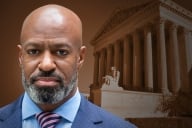You have /5 articles left.
Sign up for a free account or log in.
The formal coming-out party for the final report of the Secretary of Education's Commission on the Future of Higher Education isn't scheduled until the end of the month, when Margaret Spellings will be the featured guest at a September 26 National Press Club luncheon at which she is expected to unveil the report of the panel she created a year ago and offer her views about how its recommendations might be carried out.
But anyone looking for some insights into her thinking had good reason to see Spellings's comments at another Press Club event Thursday as a dry run. Yesterday's session heralded the official release of "Measuring Up 2006: The National Report Card on Higher Education," which received a full airing on Inside Higher Ed Thursday morning.
And while the "report card" is not formally affiliated with the work of the secretary's commission, there is overlap aplenty between the two. James B. Hunt Jr., the chairman of the National Center for Publicy Policy and Higher Education, which produces the biennial report card, is a leading member of the secretary's panel, as is Arturo Madrid, a member of the national center's Board of directors and the Murchison Distinguished Professor of the Humanities at Trinity University in Texas. In addition, Patrick M. Callan, director of the national center, has informally advised Charles Miller, who heads the federal commission, and its staff.
The imprint of the "Measuring Up" reports -- state by state looks at the climate for and performance of higher education that the center has been producing since 2000 -- is evident on the work of the commission. Its members have frequently cited the Measuring Up reports both as inspiration for the panel's push to establish a national accountability framework and as proof that national comparisons can be made. And the themes the biennial reports have focused on -- student access to higher education, college affordability, and the quality of student learning -- mirror those at the center of the commission's work.
In her comments Thursday, Spellings said there was "much alignment between these two pieces of work," referring to the Measuring Up report and the commission's own report. Spellings said she was "proud to be embracing, affirming" the work of the National Center, and applauded Callan for withstanding the "slings and arrows" that have come his way from those who have seen him as overly critical of higher education. "I'm glad to have you with me on the side of the angels," she said to Hunt, Callan and other officials of the national center. (In introducing Spellings at Thursday's meeting, Hunt described her as "the first secretary in history to take on higher education" -- a statement that probably would offend William J. Bennett, who certainly did his darnedest.)
Stepping back a bit, Spellings said she thought it was "right that we ask some questions" about higher education, given the huge sums of federal funds for research, financial aid and other purposes that flow through colleges and universities. "It's time we turn this elephant around and upside down and take a look at it," she said, adding that "this community can withstand the scrutiny."
Spellings offered relatively little in the way of an assessment of what she thought that scrutiny has revealed so far, other than to say that despite "some positive developments," she saw "some cause for concern" and "storm clouds." She got no more specific than that -- seems like we'll have to wait for September 26 for a more thorough analysis.









